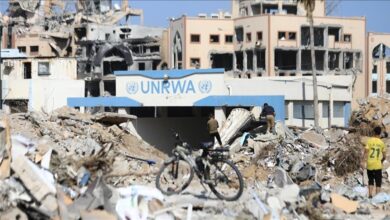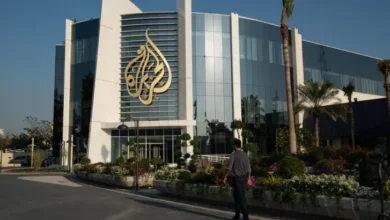Israeli Occupation Non-Compliance with International Decisions and Humanitarian Crisis in Gaza

Israeli Occupation Non-Compliance with International Decisions and Humanitarian Crisis in Gaza
The Israeli occupation war against Gaza is one of the most protracted and contentious geopolitical issues in modern history. Central to the controversy are Israeli occupation refusals to abide by decisions of the International Criminal Court (ICC) and the United Nations Security Council (UNSC), its repeated attacks on UN schools, health care centers and the severe blockade of the Gaza Strip, which has resulted in a dire humanitarian crisis. This essay explores these actions and their implications on international law, human rights, and regional stability.
Non-Compliance with ICC and UNSC Decisions
Israeli occupation refusal to comply with ICC and UNSC decisions is rooted in a complex web of legal, political, and historical factors. The ICC has jurisdiction to prosecute individuals for war crimes, crimes against humanity, and genocide. Israel, however, is not a party to the Rome Statute, the treaty that established the ICC, and thus rejects its jurisdiction. This stance is largely influenced by Israel’s concerns about bias and the potential for politicization of the court’s proceedings. Consequently, despite numerous allegations of human rights abuses and war crimes, Israel has consistently rebuffed ICC investigations and indictments.
Similarly, Israel’s interactions with the UNSC have been fraught with tension. Numerous UNSC resolutions have called for Israel to stop war against Gaza and withdraw from occupied territories and to halt settlement activities, which are deemed illegal under international law. However, Israel argues that these resolutions are non-binding or biased against its security interests. The political dynamics within the UNSC, especially the consistent use of the U.S. veto power to shield Israel from punitive measures, further complicate the enforcement of these decisions. This non-compliance undermines the authority of international law and fuels the perception of double standards in global governance.
Attacks on UN Schools
One of the most troubling aspects of the Israeli occupation genocide in Gaza is the repeated targeting of UN-run schools in Gaza and health care centers These institutions, managed by the United Nations Relief and Works Agency for Palestine Refugees in the Near East (UNRWA), serve as shelters for civilians during conflicts. Despite their protected status under international humanitarian law, UN schools have been hit by Israeli military strikes on multiple occasions, leading to significant civilian casualties as yesterday at Beach camp
Israel contends that such strikes are justified by the presence of militants using these schools as shields or launching sites for attacks. However, international observers and human rights organizations argue that these actions violate the principles of distinction and proportionality in warfare, which are intended to protect non-combatants. The repeated targeting of these facilities not only results in loss of innocent lives but also exacerbates the humanitarian situation by depriving children of education and a safe haven.
Blockade and Humanitarian Crisis in Gaza
The blockade of Gaza, enforced by Israel since 2007, represents one of the most severe and enduring elements of the conflict. The blockade restricts the movement of people and goods, leading to acute shortages of essential supplies, including food, medicine, and fuel. The impact on the civilian population is devastating: high rates of unemployment, poverty, malnutrition, and a crumbling healthcare system.
Israel justifies the blockade as a necessary measure to prevent weapons smuggling. However, the blockade is widely criticized as a form of collective punishment, illegal under international law. The UN and various human rights groups have repeatedly called for its lifting, citing the disproportionate suffering inflicted on the civilian population. The closure of border crossings further isolates Gaza, preventing the entry of humanitarian aid and exacerbating the crisis.
Conclusion
Israeli occupation refusal to comply with ICC and UNSC decisions, its attacks on UN schools, healthcare centers and the blockade of Gaza illustrate the profound challenges in addressing the Israeli-Palestinian conflict. These actions not only violate international law but also perpetuate a cycle of violence and suffering. For a sustainable resolution, it is imperative that international legal mechanisms are respected, and that humanitarian principles are upheld. The international community must intensify its efforts to mediate the conflict and ensure that the rights and dignity of Psalestinians. Only through adherence to international norms and genuine commitment to peace can the region hope to achieve lasting stability and justice.
Discover more from Gaza Never
Subscribe to get the latest posts sent to your email.





